Panels on Conservation Biology LACA 2024
Next, we introduce the speakers for the panels on conservation. These panels will provide a space for the exchange of experiences and challenges among experts in conservation biology.
- Panel on the Conservation of Ecuador’s Ichthyofauna and Herpetofauna
Moderated by: Carolina Reyes-Puig; Terrestrial Zology Laboratory, Museum of Zoology, Institute of Tropical Biodiversity (IBIOTROP); Faculty of Biological and Environmental Sciences COCIBA, USFQ; Oscar Efrén Reyes Foundation; Research Unit of the National Institute of Biodiversity (INABIO)
17:30 a 18:30 horas
Aula Magna de Teología
Pedro Jiménez Prado
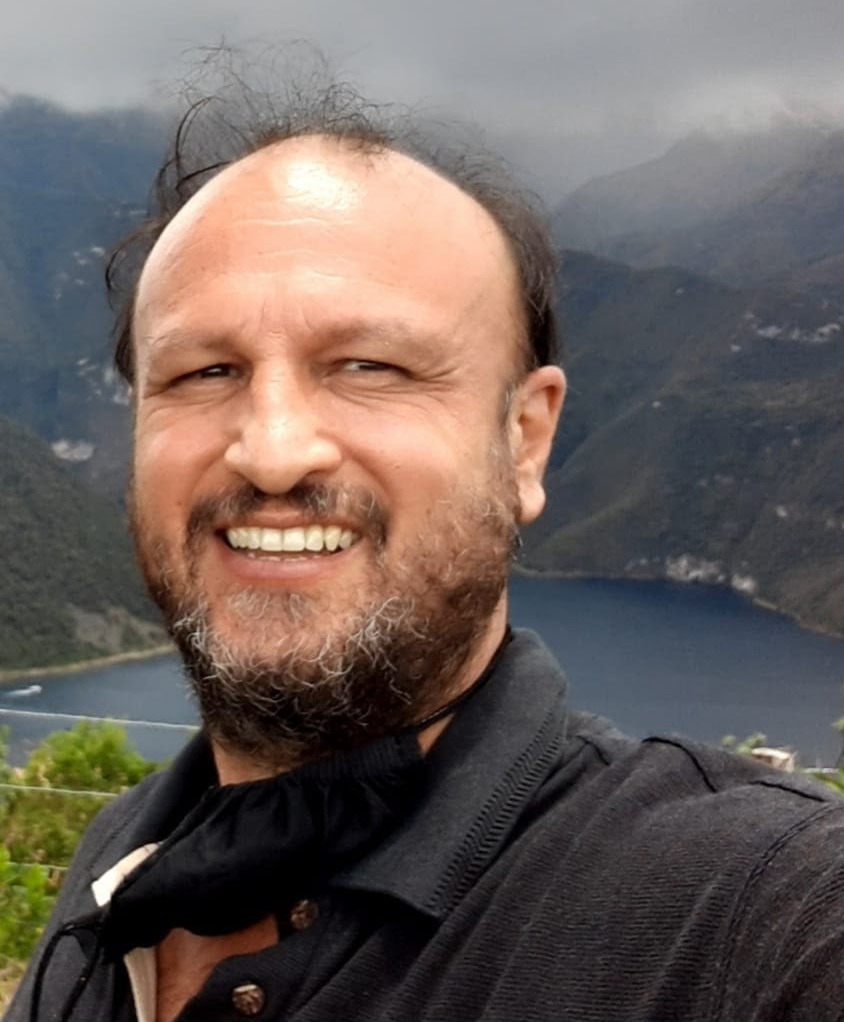
Pedro Jiménez Prado, an Ecuadorian by birth, studied Biology at the Pontificia Universidad Catolica del Ecuador de Ecuador and earned his Ph.D. from the Polytechnic School of Huesca at the University of Zaragoza, Spain. He has been a university professor for 20 years and currently works as a freshwater scientist for TNC Ecuador. His research in aquatic ecology, ichthyological biodiversity, and fisheries has resulted in numerous scientific and popular articles, as well as books that have contributed to the knowledge of the diversity and biology of both marine and freshwater fish in Ecuador. His current interest, linked to the freshwater conservation strategies of TNC Ecuador, is to generate the necessary knowledge to highlight the true dimension of ichthyological biodiversity in the Ecuadorian Amazon, as well as its status and sustainable management and conservation prospects.
Lecture Title: "The Biodiversity of Fish in Ecuador: Its True Dimension and Prospects for Management and Conservation"
Juan Manuel Guayasamín
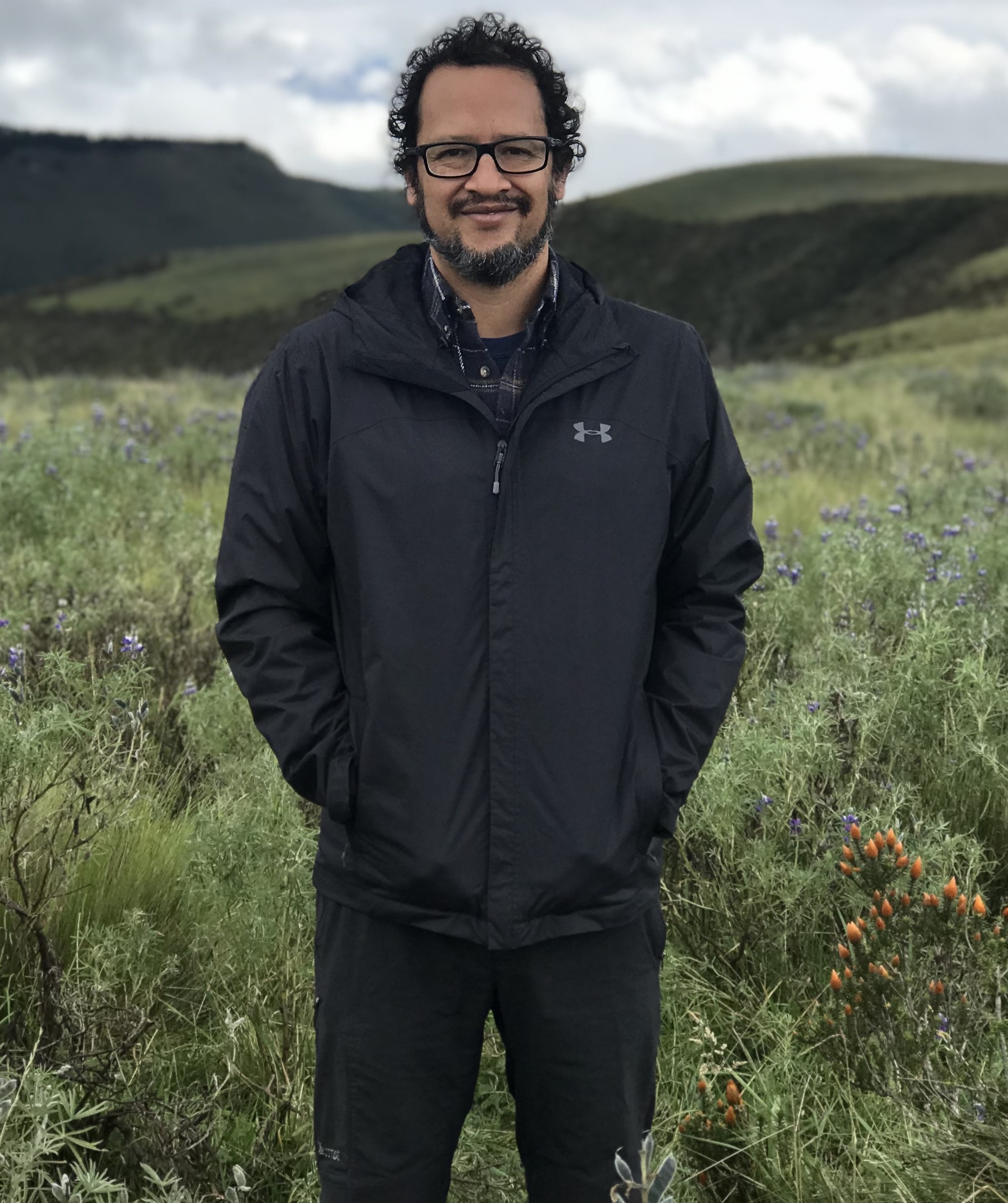
Juan Manuel Guayasamín is Vice Dean of Research and a full professor at the Universidad San Francisco de Quito (USFQ), Ecuador. His interests include evolution, ecology, taxonomy, morphology, and conservation of Neotropical diversity, with an emphasis on amphibians and reptiles. He studies the factors that promote speciation in the Andes and Amazonia. He works on describing biodiversity and has described 7 genera and 64 species of amphibians and 15 reptiles. He also investigates the impact of introduced diseases and habitat fragmentation in tropical ecosystems, contributing scientifically to conservation biology. He collaborates in processes to enforce the rights of nature against extractive activities in Ecuador, primarily mining, using the country’s endemic and threatened species as arguments. He is a member of the Ecuadorian Academy of Sciences, Atelopus Survival Initiative, Jambato Alliance, IUCN SSC Amphibian Specialist Group, and the Science Panel for the Amazon. He leads the Tandayapa Cloud Forest Station, a space dedicated to promoting research, education, and conservation in the Tropical Andes.
Lecture Title: “Science Finally as an Ally of Conservation: The Case of Amphibians in Ecuador
- Panel on the Conservation of Coastal Marine Ecosystems
Moderator by: Rubén Vinueza Chérrez; Yemanya Water and Conservation Corporation, University of Cordoba-Spain
17:30 a 18:30 horas
Aula Mgna de Teología
Lorena Caiza Morales
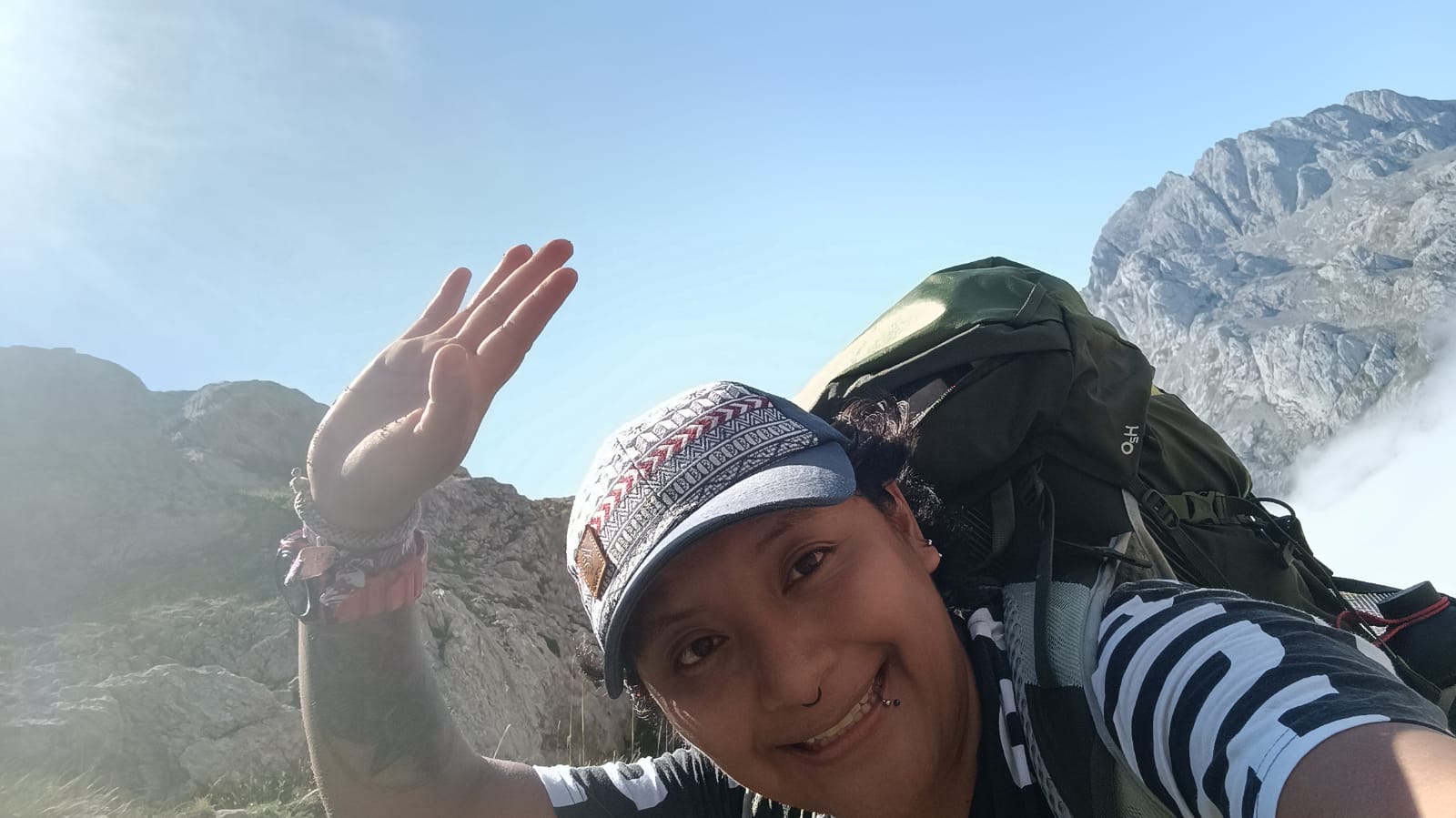
Lorena Caiza Morales is a GIS specialist and feminist dedicated to developing remote sensing tools for monitoring disturbances in forest ecosystems, integrating machine learning methodologies with remote sensing data. Her work focuses on designing accessible solutions that optimize decision-making and the sustainable management of forests. Committed to collaboration and teamwork, Lorena fosters the formation of mapping groups and actively promotes the inclusion and empowerment of women in technology and data science. In collaboration with SERVIR-Amazonia, she developed MANGLEE, an advanced tool for mangrove monitoring. Currently, she is pursuing a Ph.D. in Conservation and Sustainable Management of Forest Ecosystems at the University of Valladolid with the Cambium research group and collaborates with EcoCiencia on the SERVIR-Amazonia program. Lorena aspires to make significant contributions to science in Ecuador, strengthen environmental governance, and promote the empowerment of women and minority groups in science.
Lecture Title: “Mangrove Monitoring Experience with MANGLEE: The State of Mangroves in Ecuador”
Xavier Cornejo
.jpg)
Biologist and Botanist has been a collector and associate curator of the GUAY Herbarium of the University of Guayaquil (UG). He has participated as scientific advisor and author of several families in the Red Book of Endemic Plants of Ecuador (2011), author of the taxonomic treatments of the Proteaceae and Nymphaceae, published by the University of Gothenburg in Sweden in the Flora of Ecuador series. He is co-author of the book Flora of the Garúa Forest (trees and epiphytes) of the commune of Loma Alta, Chongón-Colonche mountain range, Guayas province, Ecuador (2004). Additionally, he is an honorary member of the Department of Botany at the University of Wisconsin, Madison, USA. From 2007 to 2012 he was assistant curator of the NY Herbarium of the New York Botanical Garden. He has completed a Master's Degree in Natural Resources Management, and since 2014 he has been a professor at the Faculty of Natural Sciences at the University of Guayaquil.
Lecture Title: “Urban afforestation with native trees and shrubs from the dry forests of the coast of Ecuador and northwestern Peru”
- Panel: Ecological Conservation Corridors in Ecuador, challenges and challenges with people
Moderated by: Gabriela Castañeda, Aves y Conservación Foundation
17:30 a 18:30 horas
Aula Mayor de Ciencias de la Educación
Juan Pablo Reyes Puig
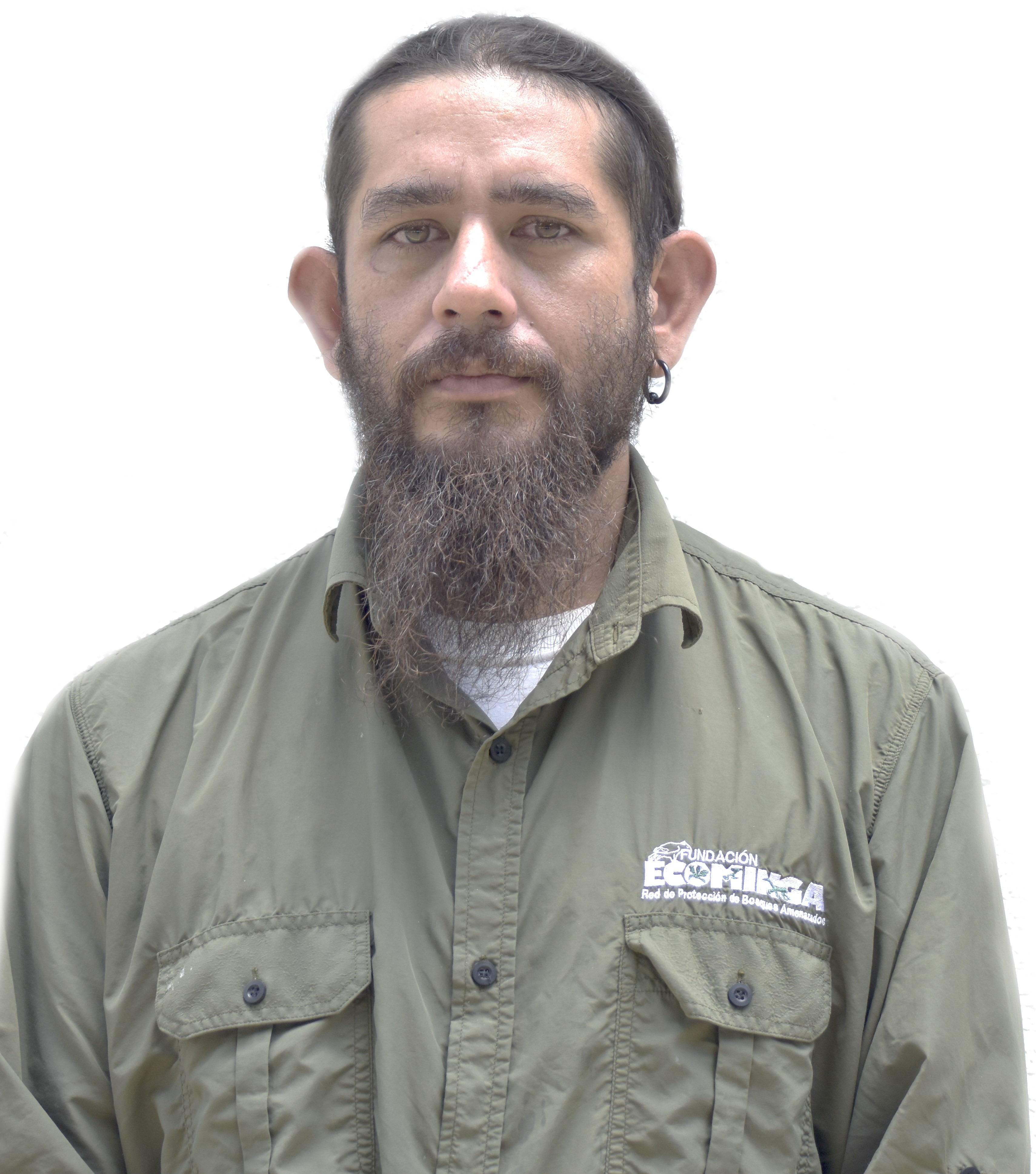
Juan Pablo Reyes Puig is a biologist graduated from the Central University of Ecuador, with two decades of work in herpetology, serving as an associate researcher at the National Institute of Biodiversity—formerly the Ecuadorian Museum of Natural Sciences. He has formally described more than 20 new species of amphibians and reptiles in the upper Pastaza River basin and northwestern Ecuador. Additionally, he has over 16 years of experience in the management and administration of protected areas with the Ecominga Foundation and the Oscar Efrén Reyes Foundation. He is a member of the IUCN Tapir Specialist Group.
Lecture Title: "Participatory Conservation in the Upper Pastaza River Basin: Small Actions with High Impact for High Endemism Groups in Small Vertebrates"
Jorge Villa
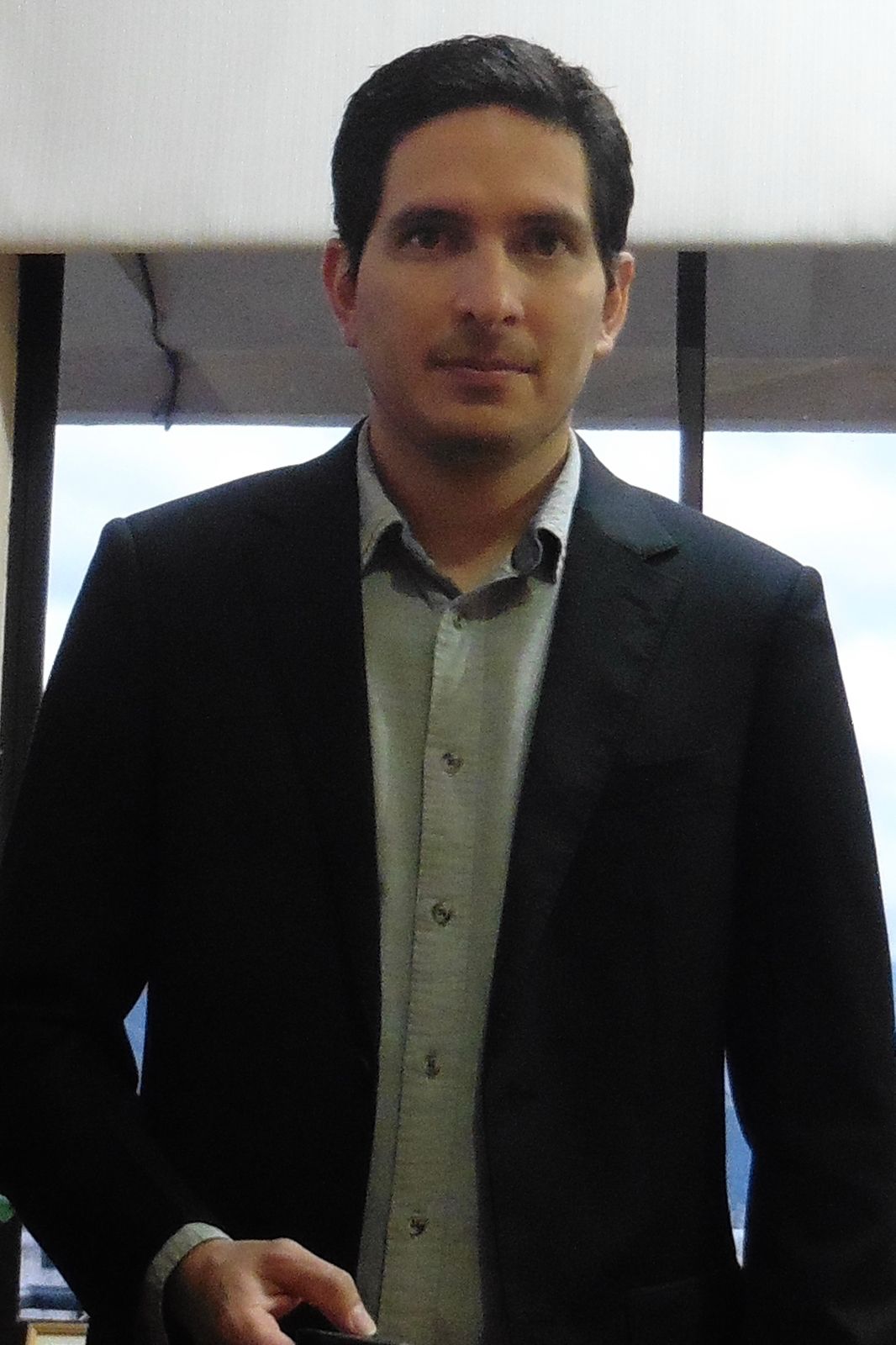
Jorge Villa, a Geographic and Environmental Engineer from the Polytechnic School of the Army and Master in Environmental Sciences from the University of Wageningen - Netherlands. He currently works as a specialist in geographic information systems and remote sensors for the EcoCiencia Foundation, as well as technical coordinator of the MAAP project for Ecuador. He has experience in the analysis and manipulation of Geographic Information (GI). Ability to generate and analyze basic and thematic cartography. In addition, he is a specialist in the generation and management of Spatial Data Infrastructure (SDI), important tools for the open exchange of GI. He also has experience in the development of Environmental Impact Studies (EIS), Development and Territorial Planning Plans (PDOT), water resources management in transboundary basins, natural risk management, climate change and economic valuation of ecosystem services.
Lecture Title: "Ecological Conservation Corridors in Ecuador: challenges and challenges with people"
